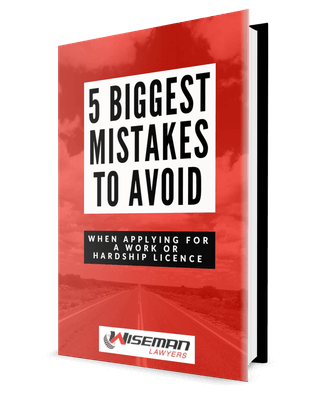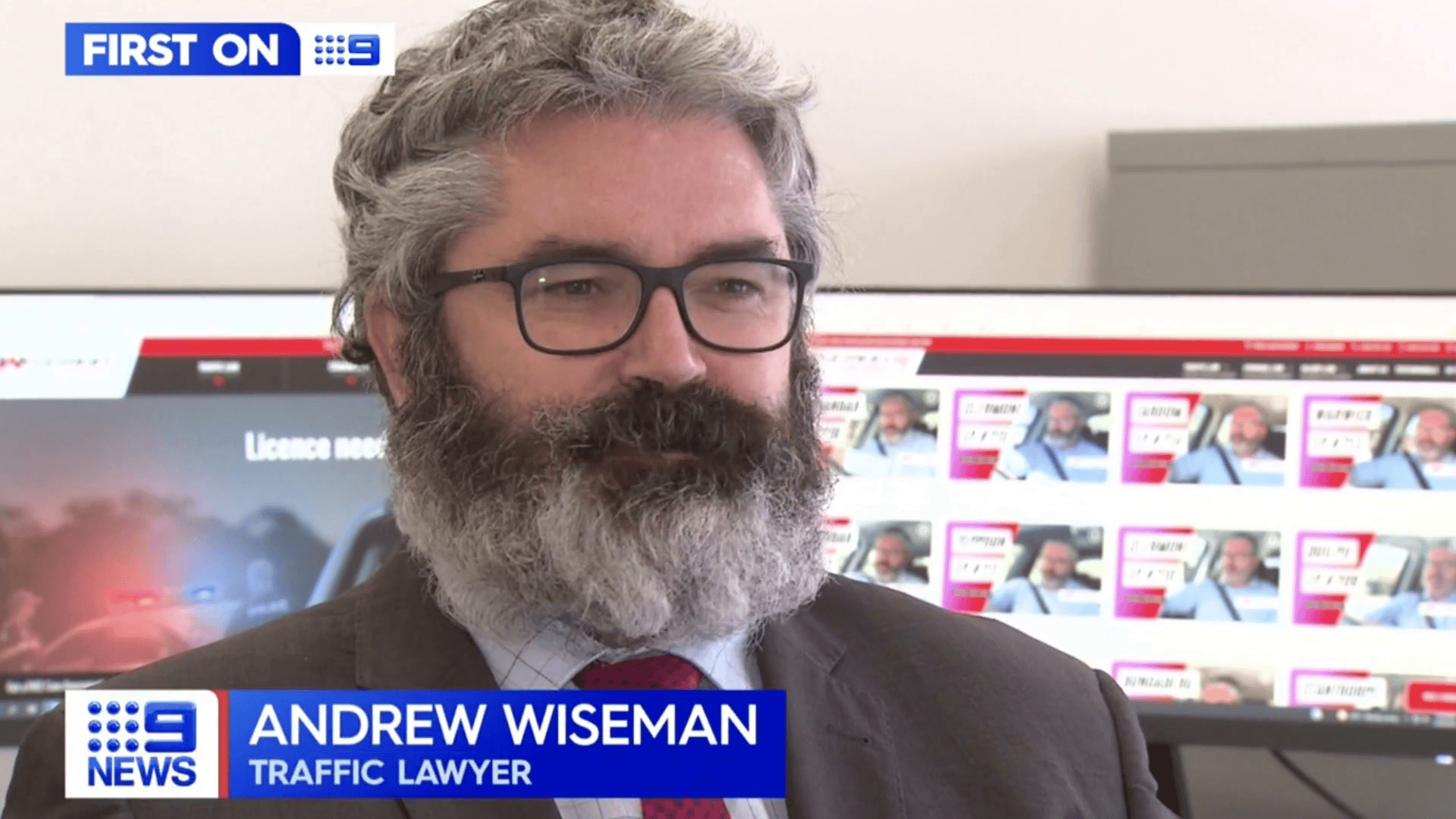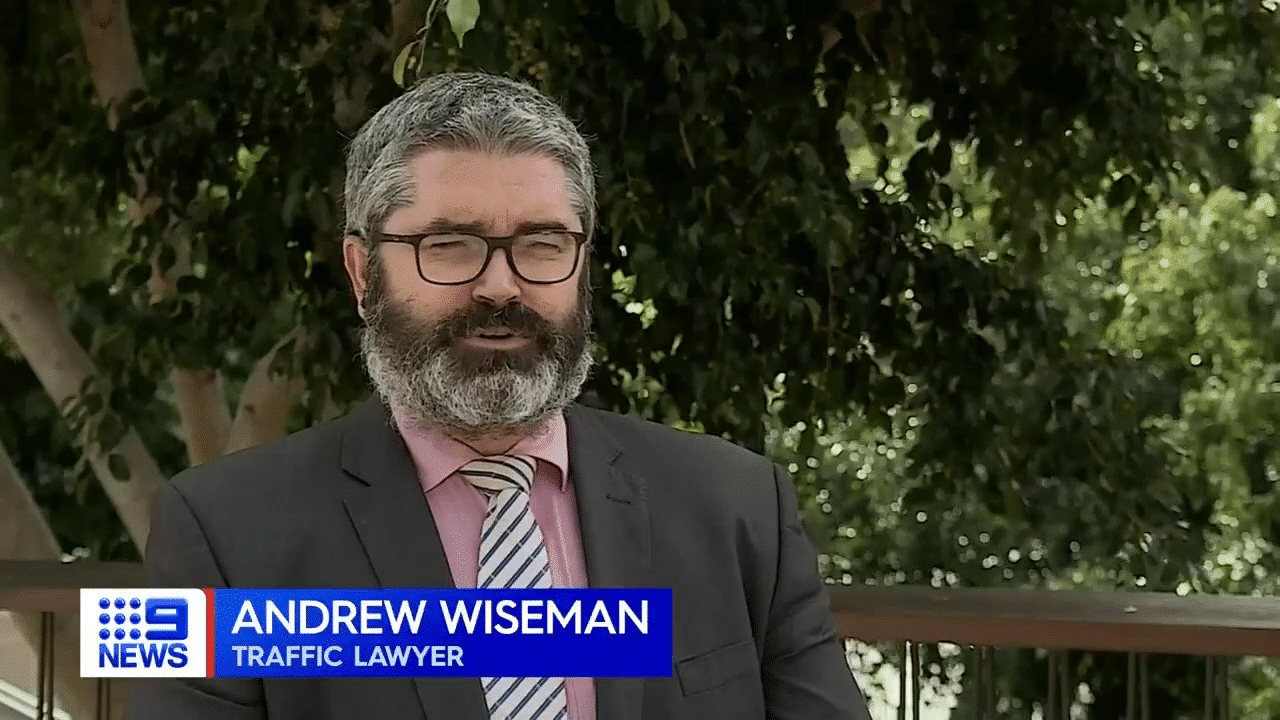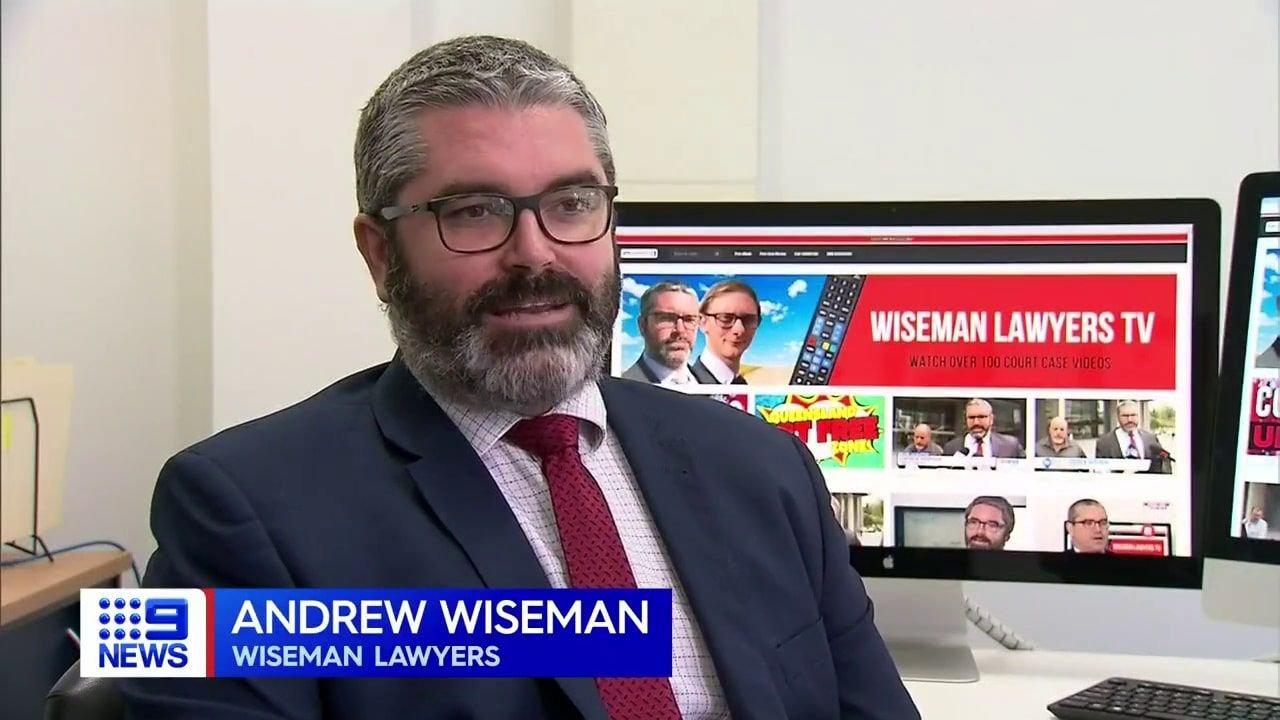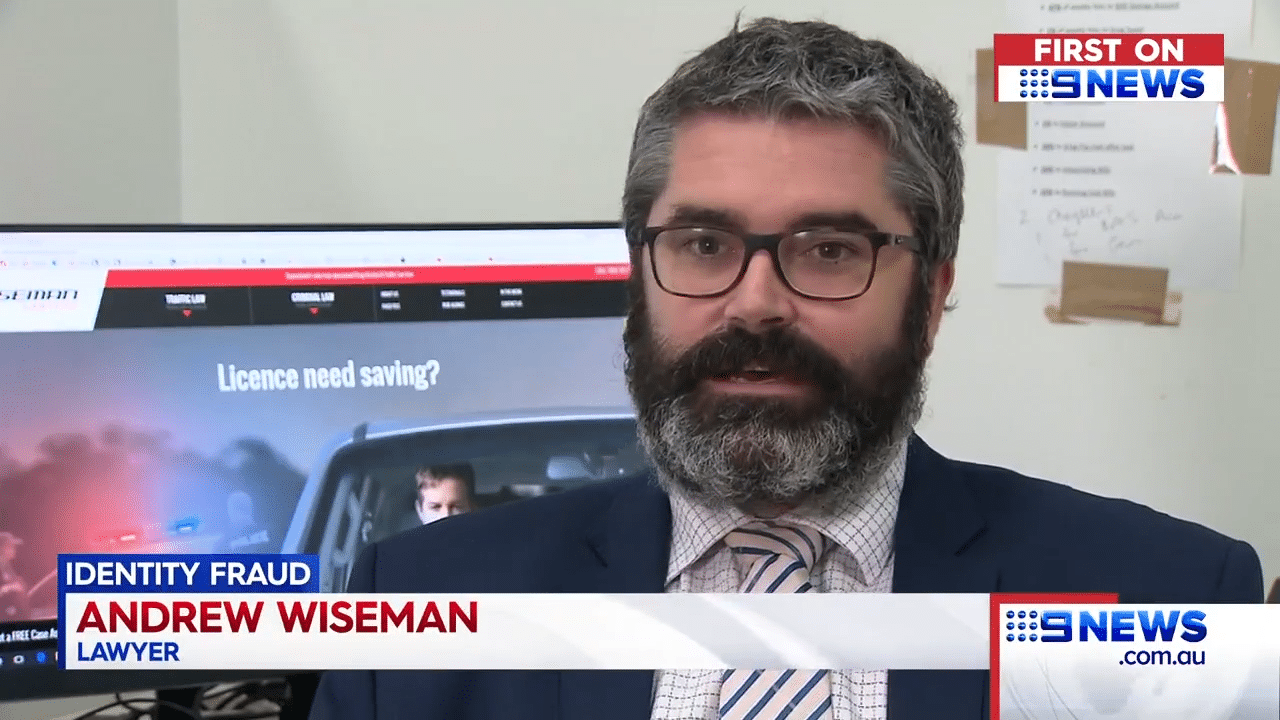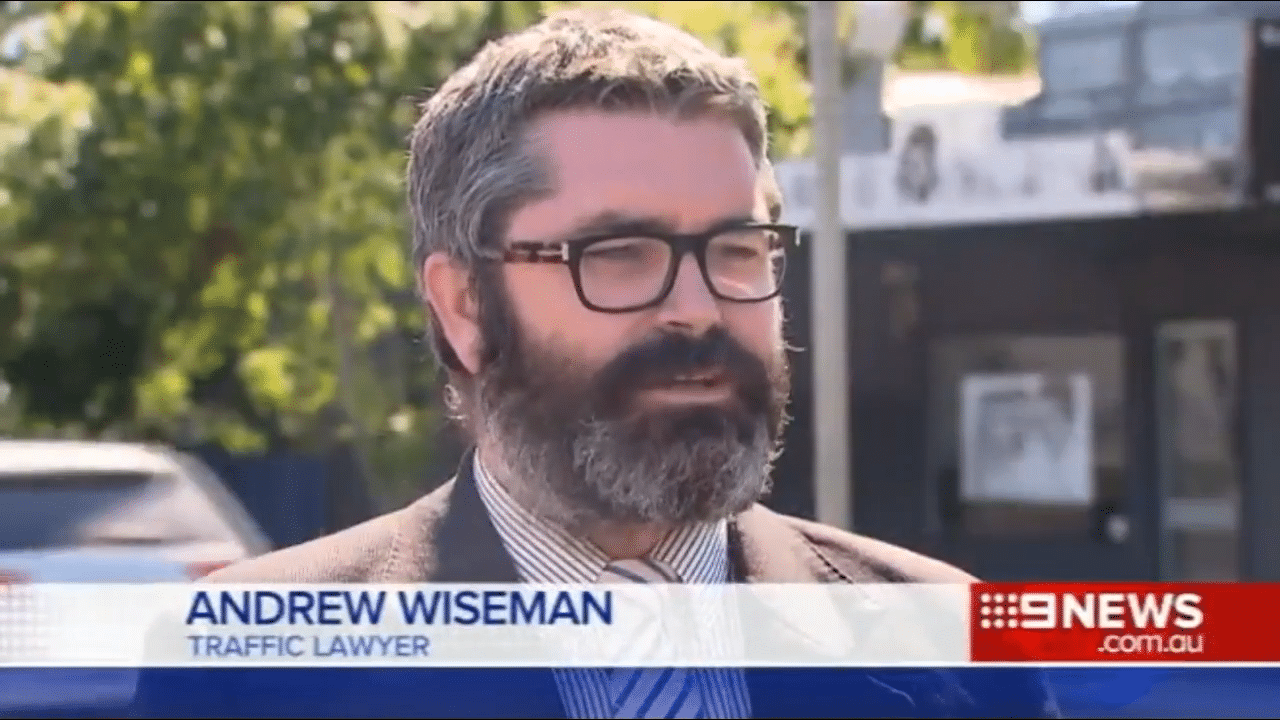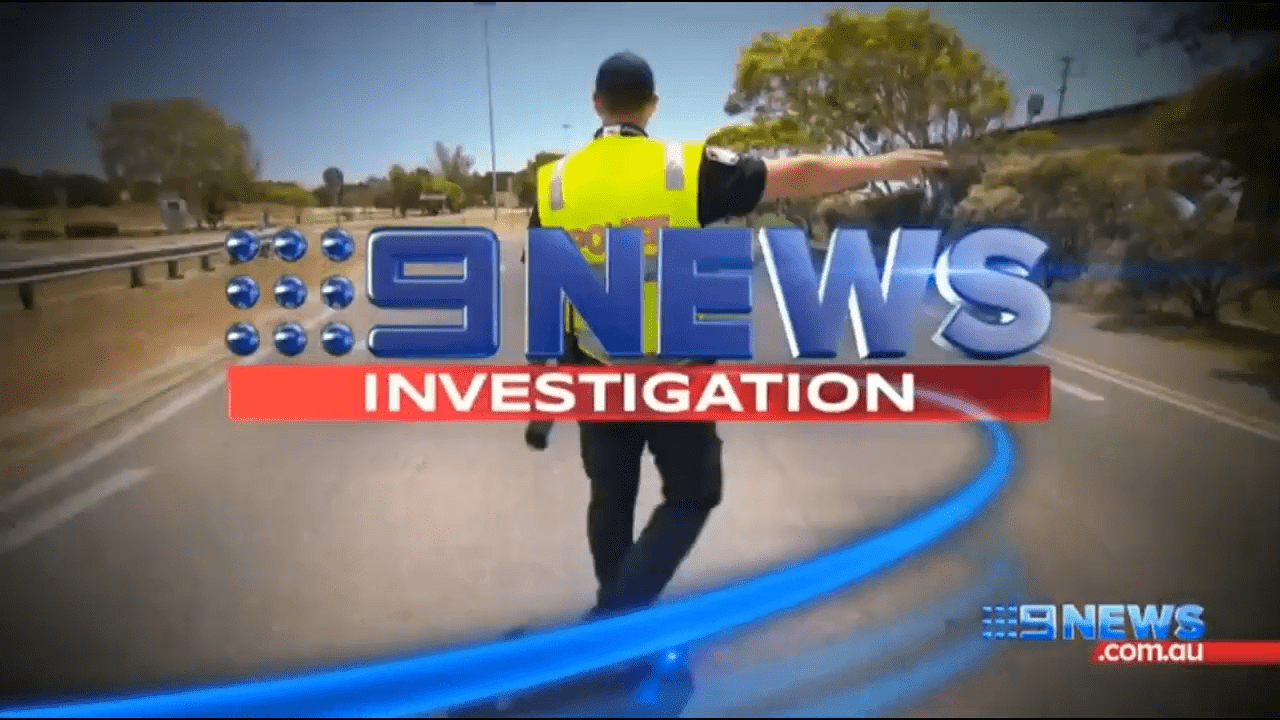Join Wiseman Lawyers Traffic Lawyer Andrew Wiseman at Holland Park Magistrates Court as he represents a client charged with Drink Driving. Watch Andrew explain what happened in the courtroom, along with the outcome which he achieved and how he achieved it.
All right, so I’m at Holland Park Magistrates Court. Client was at an extremely high risk of jail, facing a number of charges, three counts of high range drink driving, 0.211 another one of 0.271, and another one of 0.210. There was, to compound this, there was a previous, in addition to that, of 0.215 within the last five years. So this was basically his fourth high range drink driving in the last five years. One of them had been dealt with previously and I was dealing with three of them today.
In addition to that, there was two counts of driving whilst disqualified, not court ordered disqualified, but driving… Basically if you get charged high range drink driving, you can be given a immediate disqualification, meaning you can’t drive until your court date. And two of his offences were committed during periods of being disqualified from driving. There was also two counts of failing to appear.
So these all occurred in 2016 and he just didn’t go to court. So warrants were issued. He was also, so yeah, so three counts of high range drink driving, two counts of disqualified driving, and two counts of failing to appear at court, warrants were issued and basically in March of this year, police intercepted him and the gig was up, and he was recharged with all these offences.
Basically, if you get charged with three high range drink driving offences in five years, the law states it’s mandatory imprisonment. So this was his third and fourth. So there’s three offences of drink driving, going to deal with today, the first being his second high range in five years, and then his third and fourth.
So the first offence didn’t carry mandatory imprisonment, but the second and third that I dealt with today did, because as I said, the second was his third in five years, and the fourth was his fourth in five years. Yeah, so there’s no ifs, buts, or maybes, it’s mandatory imprisonment. The only flexibility is how that imprisonments to be served. And I’ll go into that in a moment.
I’m not going to talk about disqualifications because that was obviously the least of his concerns. But as you can imagine, with three counts of high range drink driving, he was going to lose his licence for quite some time. My job was all about endeavouring to avoid imprisonment, as opposed to his licence. And there’s no point in having a valid driver’s licence if you’re spending nine months in jail anyway.
We took a number of steps to prepare for today. Given these offences occurred in three different jurisdictions, I had to get them all moved to the one jurisdiction, being Holland Park. I mean, the reason we went with Holland Park is because that’s close to where he lives, and where the most recent offending occurred. So we got them all moved to Holland Park. You can only move court jurisdictions with a plea of guilty. We indicated pleas of guilty in the other jurisdictions, and then they were transferred to Holland Park for sentencing. So it took a few months to get it all the ducks to line up.
Got him to engage in a number of things. He was already getting psychiatric help, but I made sure that he ramped that up, and we got documentary evidence of that. So letters from his psych GP, et cetera, I got him to seek further help from more court and government recognised organisations to help him with his alcohol addiction. It was… He’s an alcoholic. There’s no way around it. Notwithstanding the fact that he’s been on the straight and narrow since 2016, alcoholism was at the core of why he offended the way he did. Got him to do a reformatory course that we get all of our clients to do. Got him to get some character references.
I drafted very detailed written submissions. It was about, sort of, six pages of case law where persons, in my view, similar situations, were given penalties similar to what I was seeking. I also drafted additional submissions with regard to length of terms of imprisonment in the event that I was unsuccessful in persuading the magistrate not to actually send him to jail.
So going back a step, as I said, the law says that imprisonment is mandatory, meaning the magistrate’s got no discretion whatsoever. The magistrate must hand down imprisonment. And if they fail to do that, it’ll get appealed and then end up in the district court and they’ll end up going to jail for probably longer than they otherwise would. So the only discretion the magistrate has is to how that’s packaged.
Now, when I say mandatory imprisonment, imprisonment doesn’t always mean custody or actual custody. Imprisonment can be served in a number of ways. So going backwards, so obviously the more serious form of imprisonment is actual custody, goes without saying.
Stepping back from that, the next, the slightly less serious version of that is immediate parole, which means technically you went to jail, but the day of courts, you were released date and you’ve been released on a parole. So if someone was over your criminal history, they’d say, “All right, this guy’s been to jail. And he was on parole for 70 months.” So let’s say you get four months imprisonment with immediate parole. Today is your release date. And you’re on parole for four months, meaning you’ve got to report to the parole board and do whatever they say to make sure you curb your behaviour or address your underlying issues.
A step back from is what’s called an intensive correction order, which is similar to parole. I guess it’s a bit more regimented, as targeted people who have got serious underlying issues. I guess immediate parole is more for people who just don’t learn their lesson, whereas intensive correction order more for, right, this person has underlying issues that no one’s addressing, the court needs to address, so intensive correction order. So basically, yeah. So if you get, I don’t know, four months imprisonment to be served by way of an intensive correction order, once again, you don’t actually go to jail, but you report to the probation parole organisation, to do whatever say and make sure you get on the straight and narrow.
A step back from that’s a wholly suspended sentence, meaning you get, for example, four months imprisonment wholly suspended for 12 months, meaning you don’t go to jail. You go home. And as long as you don’t play up in that 12 months, it’ll evaporate. But if you do play up in that 12 months, the four months can drop down and you can serve them with that. So I’ve had clients in that, I’ve managed to keep them out as well. But anyway, so that’s the variance of imprisonment available to a magistrate.
And obviously I was here to try and persuade the magistrate to pick anything other than actual custody. And I said to the client, “Look, as long as you get to go home, who cares? Who cares what the piece of paper says? If you are going home, instead of into a cell, it’s a good outcome.” And he obviously agreed, and again, mandatory imprisonment, there’s no flexibility or choice or alternative. It’s imprisonment, what flavour you’re going to get.
Again, I’m not going to keep harping on about what I said at the start. Drafted detailed written submissions, got him to attend to a number of steps to A) reform, and B) show the magistrate that he’s serious about once and for all getting on top of his disease.
I was on my feet for quite a bit, probably about 20 minutes, guiding the magistrate through the law that I was referring to in the submissions for the client’s background, his, basically, life story. Again, underlying issues that hadn’t been properly addressed until now. The fact that he’s, I guess back then he’s, and I did actually use the word, loser. I hope my client wasn’t too upset by me saying that, but I’m sure he wasn’t given I kept him out of jail, but during that period of offending, he was effectively a loser.
But since then he’s turned his life around. He’s unemployed then. He’s now got a job working hard, making his way up through his employment organisation. Met a lady, they’re in a, in fact, a relationship. She’s pregnant, child on the way. So yeah, so it’s chalk and cheese basically.
And I guess that’s what alcoholism is, or any kind of disease of the mind. There’s the real you, then there’s the diseased you, and he was the disease, the alcoholic back then, and now he’s the sprightly, energetic young man that he is now.
I mean, I’ve had a number of clients who I’ve acted for, on a few occasions, where I’ve seen him on both sides, especially with ice. I’ve had clients where a fresh, sort of, healthy young lady just made a mistake and then couldn’t kick it. And then four years later, you can just see it in their face, but I’m not going to talk… I’ve got my own views on the causes of the ice epidemic and the alcohol tax, in my mind, is a big part of it. Soon as the government turned a night on the turps into a $400 affair, they created a market for $25 points of ice. But anyway, that’s a discussion for another day.
Going back to my client, the long and short of it is, I was successful in persuading the magistrate not to send my client to jail. So he got, for the first offence, in time, he got 14 days imprisonment wholly suspended for a year. For the second offence, in time, he got, well, one month’s imprisonment with immediate parole. So one month for the DUI, one month for the disqualified driving, to be served concurrent with immediate parole, meaning doesn’t go to jail. And for the last one, in time, two months for each charge. Two months for the DUI, two months for the disqualified driving, again to be served concurrent.
So the two sets one month for the prior offence and the two sets of two months for the later offence, all run parallel. So in real world terms, it’s two months imprisonment with immediate parole, but obviously running concurrent with that is the 12 months wholly suspended imprisonment for the first offence in time. So basically he doesn’t go home. He goes straight to the probation and parole unit, if you want to call them that, to report, does what they say for four months, as long as he doesn’t play up in that time, he will be fine. But obviously if he does he’ll face resentencing.
I’m not a mathematician, so I can’t quote off the top of the head, how long he lost his licence for, but it was for quite some time, but that said, once he’s served two years, he can apply to the court for them to give him his licence back early. So in Queensland, if you lose your licence for two years or more, once you’ve served two years, you can apply to get it back early. And that’s it. So again, client, as you’d imagine, very relieved, extremely relieved. I’m Andrew Wiseman at Holland Park. Thanks for watching.
